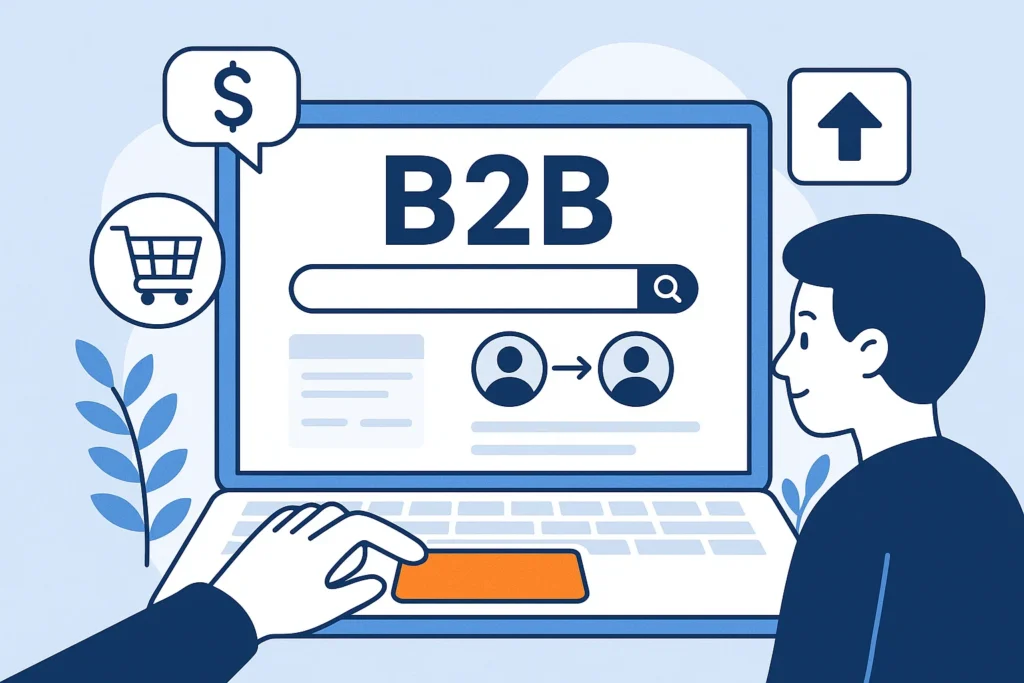
A B2B portal (Business-to-Business portal) is a digital platform that enables companies to conduct business transactions, share information, and build relationships with other businesses. These portals are primarily used by manufacturers, wholesalers, suppliers, distributors, exporters, and importers to connect and trade in bulk rather than selling products to individual consumers.
Unlike traditional methods of networking or trade, a B2B portal provides a centralized space where multiple business operations can be performed online—from product discovery and price negotiations to payment processing and shipment tracking.
Key Features of a B2B Portal
- Business Directory: Verified profiles of suppliers, manufacturers, exporters, and buyers.
- Product Catalogs: Listings of industrial or wholesale products with specifications, pricing, and MOQ (Minimum Order Quantity).
- Request for Quotations (RFQs): Buyers can request bulk quotes from multiple vendors simultaneously.
- Order Management System: Tracks inquiries, quotations, payments, dispatch, and delivery.
- Payment Integration: Secure online payment gateways and transaction histories.
- Multilingual & Multi-Currency Options: Ideal for global trade.
- Communication Tools: Chat, email, or inquiry forms to interact with potential partners.
How B2B Portals Work
- Business Registration: Sellers and buyers register on the portal and create their business profiles.
- Product Listing: Sellers upload their product listings with prices, images, and descriptions.
- Lead Generation: Buyers search for products and send inquiries or RFQs to suppliers.
- Negotiation & Deal Finalization: Through the portal’s chat or messaging system.
- Order Placement: Buyers place bulk orders and make payments via the portal.
- Delivery & Follow-Up: Sellers dispatch goods; buyers can track orders and leave reviews.
Benefits of B2B Portals
For Sellers:
- Wider Market Reach: Connect with national and international buyers.
- Lead Generation: Get real-time inquiries from interested buyers.
- Brand Visibility: Showcase your business to a targeted B2B audience.
- Reduced Marketing Costs: No need for physical outreach or trade fairs.
For Buyers:
- Bulk Purchasing Options: Easy access to multiple vendors and price comparisons.
- Time Saving: Source products online without traveling or attending expos.
- Verified Vendors: Most portals provide ratings and verified seller tags.
- Competitive Pricing: With access to a global marketplace, better rates are often available.
Types of Businesses That Use B2B Portals
- Manufacturers
- Exporters/Importers
- Wholesale Distributors
- Retail Chains (for bulk buying)
- Service Providers (like logistics, packaging, OEMs)
- Government Procurement Agencies
Why B2B Portals are Important in Today’s Market
With digitalization, B2B commerce has evolved rapidly. Traditional barriers such as distance, language, and time zones are no longer obstacles. B2B portals allow companies to scale faster, minimize overheads, and reach untapped markets—all from the convenience of a screen. In industries where bulk purchasing and long-term partnerships matter, these platforms serve as a critical channel for growth and revenue.
Final Thoughts
A B2B portal is more than just a business directory—it’s a complete digital ecosystem that fosters business growth, supply chain efficiency, and long-term partnerships. Whether you’re a small manufacturer or a global importer, leveraging the right B2B platform can streamline your procurement or sales process, reduce operational costs, and unlock new markets. As the global business landscape becomes increasingly digital, B2B portals are not just helpful—they’re essential.
